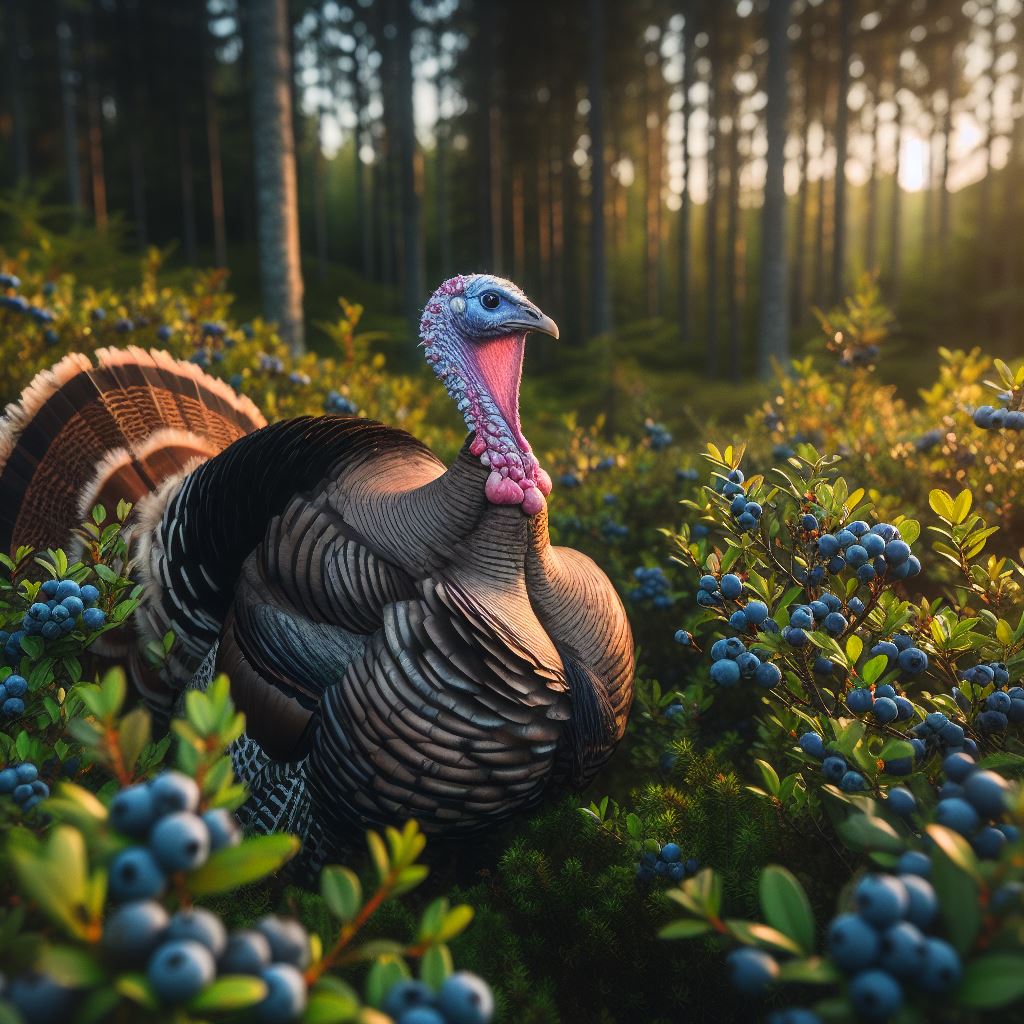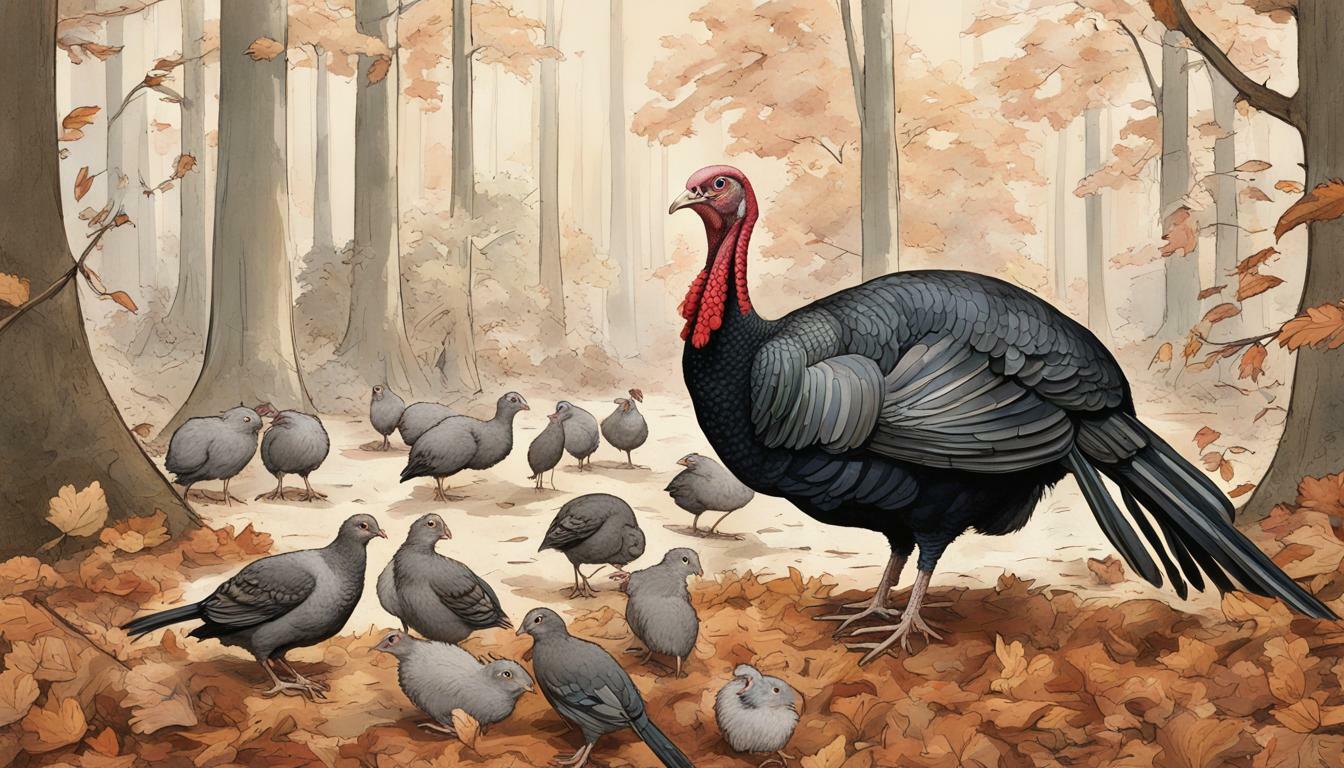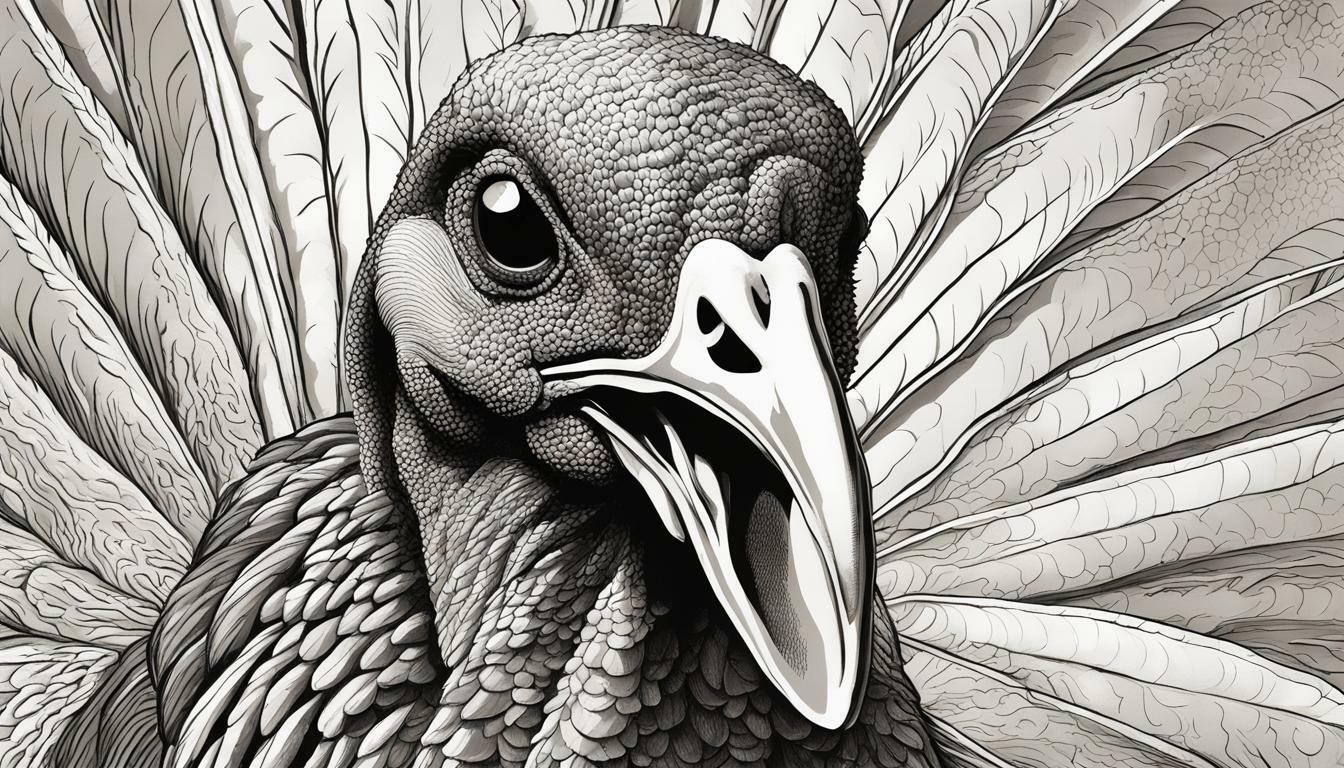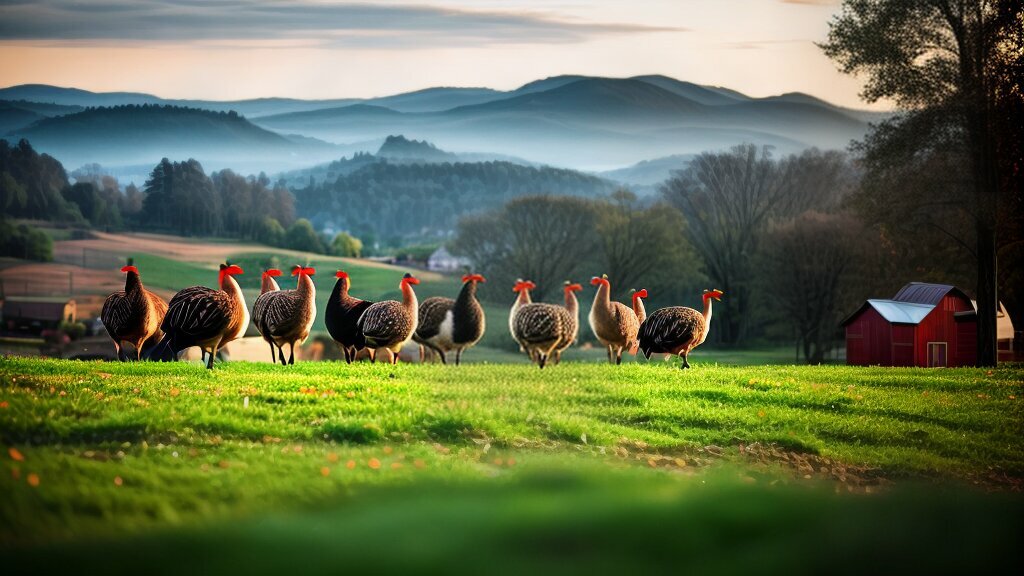Can Turkeys Eat Grapes? Guide for Poultry Owners
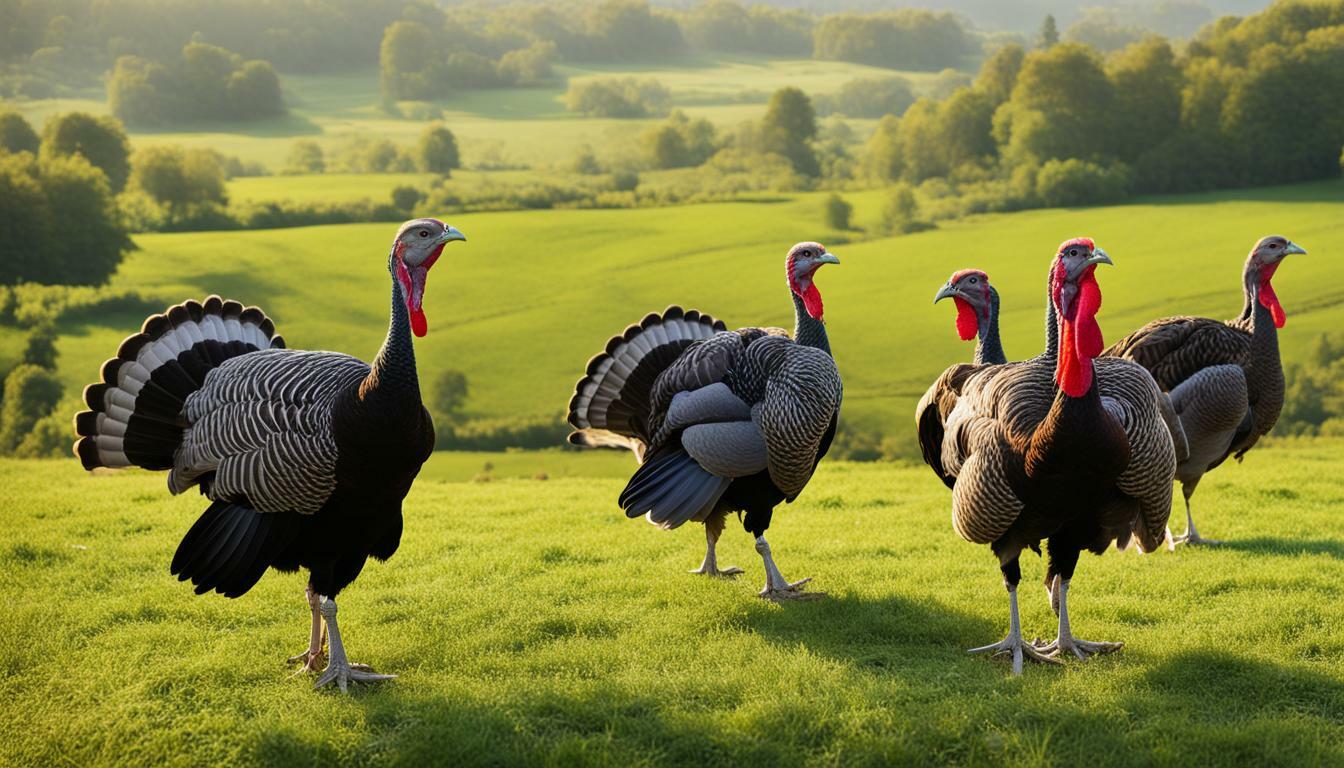
Table of content:
- Are Grapes Toxic to Turkeys?
- Understanding Grape Toxicity in Turkeys
- Health Problems Caused by Grapes
- Are Wild Turkeys Affected by Grapes?
- Feeding Grapes to Pet Turkeys
- Can Turkeys Eat Raisins?
- Safe Alternatives to Grapes for Turkeys
- Preventing Accidental Ingestion
- How to Diagnose Grape Toxicity
- Treating Grape Toxicity
- Can Kidney Damage Be Prevented?
- Are Other Dried Fruits Safe for Turkeys?
- Safe Treats and Foraging for Turkeys
- Final Thoughts
Grapes are a popular fruit enjoyed by humans around the world. But what about our feathered friends – can turkeys eat grapes too? This article will explore whether or not grapes are safe and healthy for turkeys to consume.
Are Grapes Toxic to Turkeys?
Many people wonder, “can turkeys eat grapes?” The short answer is no, turkeys should not eat grapes. Grapes contain toxic compounds that can cause kidney failure in turkeys. The seeds, stems and leaves of grapes also contain cyanide, which is poisonous.
Even small amounts of grapes can be dangerous to turkeys. The toxins in grapes don’t cause immediate illness but lead to irreversible kidney damage over time. By the time signs of illness show, it is often too late to save the turkey.
So it’s clear that grapes should be avoided to keep turkeys safe and healthy. But why exactly are grapes toxic to turkeys when humans can eat them safely?
Understanding Grape Toxicity in Turkeys
Grapes contain high levels of oxalates – natural compounds that bind to calcium to form crystals. In turkeys, these crystals lodge in the kidneys, causing damage and eventual kidney failure.
Turkeys are especially prone to oxalate poisoning because they have very efficient kidneys. The kidneys filter oxalates out of the blood very quickly, causing crystals to accumulate at high concentrations.
Humans process oxalates differently, so grapes don’t pose the same toxicity threat. But for turkeys, the physiology of their kidneys makes even small amounts of grapes dangerous over time.
In addition to oxalates, the seeds, stems and leaves of grapes contain cyanide compounds. Cyanide is highly poisonous at low dosages, so these parts of grapes pose an immediate toxicity threat.
Health Problems Caused by Grapes
If a turkey eats grapes, what symptoms or health issues can you expect? Here are some of the most common:
- Excessive thirst and urination – The kidneys try to flush out the oxalates, causing excessive thirst and urine production.
- Loss of appetite – As toxins build up, the turkey feels ill and loses its desire to eat.
- Weakness and lethargy – Kidney damage results in build-up of toxins in the blood, leaving the turkey weak.
- Diarrhea – Digestive upset can occur as the body tries to eliminate excess toxins.
- Weight loss – Lack of appetite and difficulty digesting food leads to weight loss.
- Leg paralysis – Nerve damage from oxalate crystals can cause leg weakness and paralysis.
- Death – If left untreated, kidney failure and toxicity eventually lead to death.
These symptoms can develop over days, weeks or even months after ingesting grapes as the kidneys gradually fail. By the time symptoms appear, significant damage has already occurred.
Are Wild Turkeys Affected by Grapes?
You may wonder whether wild turkeys can safely eat grapes they find growing in the wild. The answer is no – wild turkeys will get just as sick from eating grapes as domestic turkeys.
Some people argue that wild turkeys have built up tolerance over generations of eating native grapes. However, experts disagree. Even if wild turkeys eat small grape amounts, toxins accumulate gradually until the kidneys fail.
Wild turkeys likely avoid grapes unless they face starvation with no other foods available. Even then, eating grapes can have devastating health consequences.
Since wild turkeys roam freely, they may accidentally ingest grapes while foraging. However, they do not intentionally seek out grapes as a regular food source. Their instincts tell them grapes should be avoided.
Feeding Grapes to Pet Turkeys
Well-meaning turkey owners sometimes offer grapes to their pets as treats. However, feeding grapes to your pet turkey can be fatal.
Even one or two grapes can start causing kidney damage. Over several weeks, a few grapes can build up enough oxalates to induce kidney failure.
Signs of illness may not be obvious immediately, but by the time they show up the prognosis is grim. Your pet turkey relies on you to provide healthy foods and avoid toxins.
Many fruits that humans enjoy are toxic for turkeys, including apples, citrus fruits, peaches and cherries. Always research new foods before offering them. Stick to certified turkey feed and known safe fruits like strawberries, blueberries and watermelon.
And remember – no grapes means none at all. Removing seeds or peels does not make grapes safe, since toxins are throughout the flesh. Never take the risk of offering grapes to your treasured pet turkey.
Can Turkeys Eat Raisins?
Raisins are dried grapes, so it follows that raisins are also toxic for turkeys. The dehydration process concentrates sugars and toxins, making raisins potentially even more dangerous.
Feeding raisins to turkeys can cause the same symptoms as fresh grapes. The oxalates and acids in raisins lead to irreversible kidney damage over time.
Even infrequent raisins should be avoided. Stick to healthy turkey treats like chopped greens, berries, seeds and turkey feed. Your pet turkey relies on you to keep their best interests in mind and avoid harmful foods.
Safe Alternatives to Grapes for Turkeys
While grapes are clearly off the menu, there are many healthy, safe fruits and veggies turkeys can enjoy in moderation, including:
- Strawberries
- Blueberries
- Raspberries
- Apple slices (peel and seeds removed)
- Watermelon
- Cantaloupe
- Oranges (peel removed)
- Sweet potatoes
- Carrots
- Leafy greens like kale and lettuce
- Shelled sunflower seeds
Focus on providing a balanced diet with designated turkey feed as the mainstay. Supplement with small treats of human foods occasionally for variety.
Always research safety before introducing new foods. When in doubt, avoid food rather than risk a turkey’s health. Stick to tried and true healthy choices like those listed above.
Preventing Accidental Ingestion
Even if you never feed grapes to your turkey intentionally, accidental ingestion can occur. Grapes grown in gardens or fallen from trees in outdoor runs can pose a hazard.
Here are some tips to keep your turkey safe:
- Don’t grow grapes or fruit trees in areas accessible to turkeys.
- Check yards for fallen fruit daily and remove it.
- Use fencing or netting to block plants turkeys shouldn’t eat.
- House turkeys in a secure indoor coop when unattended.
- Train turkeys with a strong “leave it” command to avoid harmful foods.
With vigilance, you can prevent the disaster of a turkey unintentionally eating grapes or other toxic fruits. Supervise outdoor time and turkey-proof their environment.
How to Diagnose Grape Toxicity
If you suspect your turkey ingested grapes, get them to an avian vet immediately. Prompt treatment is essential.
The vet will ask about symptoms and perform blood and urine tests. Expect the following diagnostic process:
- Physical exam – Check for dehydration, oral ulcers, weakness and other symptoms.
- Complete blood count (CBC) – Evaluates blood cells and checks for anemia, infection and toxins.
- Chemistry panel – Measures kidney function, protein and electrolyte levels.
- Urinalysis – Checks urine for oxalate crystals.
- Radiographs (x-rays) – Helps diagnose kidney damage and mineral deposits.
Based on test results, the vet can confirm grape toxicity and prescribe appropriate treatment. Unfortunately, kidney damage cannot be reversed. But with supportive care, progression can potentially be slowed.
Treating Grape Toxicity
There is no antidote to reverse grape poisoning in turkeys. Treatment focuses on:
- IV fluids – Correct dehydration and flush toxins from kidneys
- Medications – Drugs that reduce kidney damage and control symptoms
- Low protein diet – Reduces strain on damaged kidneys
- Symptom management – Treats diarrhea, pain, neurological issues, etc.
Despite aggressive treatment, kidney failure often progresses leading to death or euthanasia. The prognosis depends on how quickly treatment begins after ingestion.
Always provide immediate veterinary care if grapes are eaten, even if the turkey seems fine. Early treatment before symptoms arise gives the best chance.
Can Kidney Damage Be Prevented?
Unfortunately, once a turkey eats grapes the subsequent kidney damage cannot be prevented. Grapes contain nephrotoxins which permanently destroy kidney tubules and blood vessels.
However, limiting further toxin exposure after ingestion may slow down the progression of kidney failure. With supportive veterinary care, some turkeys can live with partial kidney function for an extended time.
The best prevention is never feeding grapes in the first place. Also, eliminate access to wild grapes or fallen fruit to prevent accidental consumption. Protect your turkey’s kidneys by avoiding grapes completely.
Are Other Dried Fruits Safe for Turkeys?
You may be wondering whether other dried fruits pose the same toxicity risk for turkeys as raisins. Dried cranberries, apricots, apples, pineapple and other fruits contain less oxalates than grapes.
However, experts still recommend caution with all dried fruit. The dehydration process concentrates sugars and acids to levels that can irritate a turkey’s kidneys.
To be safe, view dried fruits as an occasional treat in very small amounts for turkeys. Better choices are fresh berries, melon and greens which provide hydration.
Monitor your turkey’s droppings after introducing new foods. Runny or abnormal poop could signal digestive upset from too much fruit sugar or acidity. Adjust their diet accordingly to maintain health.
Safe Treats and Foraging for Turkeys
While grapes are clearly dangerous, turkeys enjoy and benefit from many other treats and foraged foods. Here are some examples of safe, species-appropriate treats to supplement your turkey’s diet:
- Greens – Kale, lettuce greens, spinach, arugula, grass clippings. Provides hydration, fiber and nutrients. Chop for smaller turkeys.
- Squash and gourds – Sliced raw zucchini, acorn squash, pumpkin. Provides moisture and healthy vitamins.
- Sprouts – Alfalfa, lentil or bean sprouts. High in protein and minerals.
- Seeds – Chopped unsalted peanuts, sunflower seeds in moderation. Healthy fats and protein.
- Insects – Mealworms, crickets and earthworms. Natural food source high in protein.
- Grit – Crushed oyster shell, granite grit. Supports digestion, especially for adult turkeys.
- Fruit – Apple slices, melon cubes, berry pieces in very small amounts. Provides antioxidants and hydration.
Rotate a variety of treats to keep your turkey interested and healthy. Allow turkeys to forage freely in safe grassy areas. Nature provides the best foods to meet their nutritional needs.
Final Thoughts
In summary, it is clear that grapes are toxic for both wild and domesticated turkeys. Even small amounts can lead to irreversible kidney damage over time due to high oxalate content. Never purposefully feed grapes to pet turkeys. Also, take steps to prevent accidental ingestion from gardens and fallen fruit.
With vigilance, you can keep your treasured turkey safe by avoiding grapes entirely. Focus instead on providing a balanced diet with turkey feed supplemented by healthy treats like leafy greens, seeds and berries. Maintaining kidney health ensures your turkey friend stays happy and thriving for years to come.
Welcome. I’m Adreena Shanum, the proud owner of this website, and I am incredibly passionate about animals, especially poultry. I founded adreenapets.com as a labor of love, stemming from my desire to share my knowledge and experiences with poultry enthusiasts worldwide.

